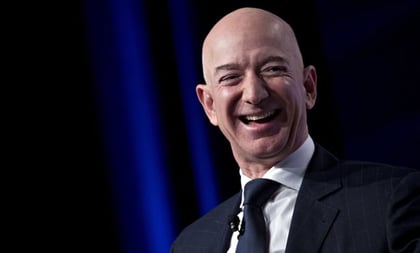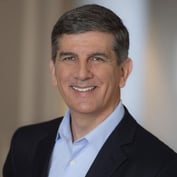One day after Jeff Bezos said he was stepping down as CEO of Amazon, financial industry experts are speaking out about the lessons advisors can learn from the success of both Bezos and the $1.7 trillion firm he started some 26 years ago — including the importance of embracing technology and succession planning.
“Bezos saw the potential of the Internet before everyone else did,” Joel Bruckenstein, head of Technology Tools for Today (T3), said Wednesday. “Bezos saw the potential to apply machine learning and artificial intelligence to customer data before everyone else did. Bezos has almost a religious focus on operational efficiency and an excellent client experience.”
As a result, “there are a few lessons here,” Bruckenstein explained. “One, embrace technology early. Advisors tend to be late adopters. You are never going to create large competitive advantages without embracing change and new technologies.
“As an industry, we are still way behind most other industries with regard to machine learning and AI,” he added. “Those who embrace these technologies intelligently will prosper in financial services.”
Another key lesson for advisors is to “focus less of your time on, for example, trying to select a better investment portfolio, and focus more time on providing an exceptional user client experience and improving operational efficiencies,” Bruckenstein said.
Also, “advisors can learn that there are no shortcuts to success,” according to Timothy Welsh, president, CEO and founder of consulting firm Nexus Strategy. “Bezos had a vision, a long-term plan, stuck to it and with many short-term sacrifices created one of the world’s greatest companies.”
Similarly, Douglas Boneparth, an advisor and president of Bone Fide Wealth in New York, told ThinkAdvisor: “The biggest thing that advisors can learn from Jeff Bezos is the same thing that anyone can learn. It’s that hard work, determination and never giving up is one of the best recipes for success.”
Going Out on Top
“Bezos also demonstrates something that’s very hard to do professionally: go out on top,” according to Boneparth.
“Nothing can be more detrimental to the value of one’s practice than failing to pass the baton or exit. It also shows the importance of having a succession plan and knowing who to pass the baton to,” he said.
Agreeing on that latter point, Tommy Marshall, executive director of Georgia Fintech Academy, said: “My understanding is that Bezos groomed the replacement for quite a while.”
That replacement is current Amazon Web Services (AWS) CEO Andrew Jassy, who will take the helm this summer, while Bezos will become executive chair of Amazon’s board, the company said.
“Bezos is changing his position on a high, which is the dream for most CEOs, and especially founders,” according to leadership consultant Jennifer Mackin.
What Leads to Good Succession Planning
“Succession planning requires great thought and time, which I think has gone into Jeff Bezos’ decision. Announcing six months ahead of the change is a lot of notice,” said Mackin.
Bezos “can help advisors realize that they can step back from a business that likely feels synonymous with them,” said David DeVoe, CEO and founder of consulting firm DeVoe & Co.
After all, “if Jeff Bezos can step back from Amazon, you can surely step back from your RIA — with the proper planning,” he said.
“Ideally, this realization — that even you are replaceable — can help move the succession planning forward,” DeVoe said. “Many of us CEOs won’t let go. Realizing we can let go is the first step in transition planning.”
However, the Bezos succession plan is “not an example to follow” because “surprise announcements are not good for founder transition,” DeVoe argued.
“By contrast, the transition plans of Chuck Schwab at Schwab and Harvey Golub at American Express are the gold standard. These CEOs seasoned their candidates with a variety of senior roles, then identified their successor years before a specific transition date, and were there to coach them for years.”









 February 03, 2021 at 03:12 PM
February 03, 2021 at 03:12 PM










